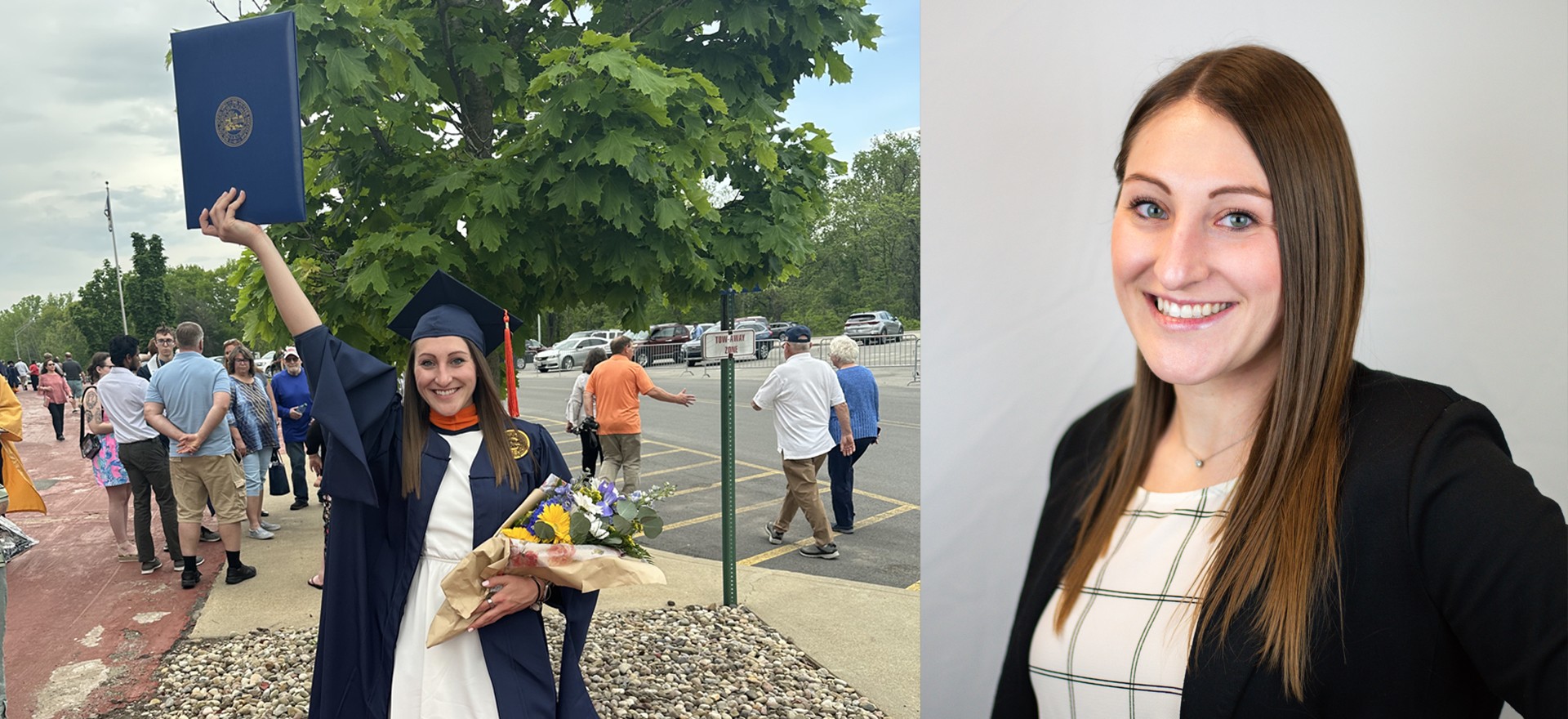

Manufacturing has historically been a male-dominated industry - fewer than one third of manufacturing employees are women. However, times are changing and so are the faces of manufacturing.
To inspire women and girls to explore industrial careers, check back often on Festo’s STEM blog for powerful stories and updates about women who are making an impact in smart manufacturing and other STEM-related careers.
Below, we talk to Anna Billey, a recent graduate from West Virginia University (WVU) who is starting out in her industrial engineering career and was recently recruited by a top automotive manufacturer.
Anna, please tell us a little about your academic journey to advanced manufacturing.
Anna: I started my collegiate career at Cal U. It's in California, Pennsylvania - now called Penn West. I began in the fall of 2017 in the mechatronics engineering technology program and I graduated in the spring of 2021 with my bachelor of science in mechatronics and minored in math. After at my venture at Cal U, I knew that I wanted to pursue a higher degree. Through a professor at Cal U, I was connected to Dr. Thorsten Wuest and ended up finding his lab at West Virginia University (WVU). I started my master's degree in industrial engineering in the fall of 2021 and graduated in May 2023.
What made you interested in smart manufacturing beyond the classroom, from a career standpoint?
Anna: I would actually contribute that to my internships. Normally, you don't run into manufacturing in classes. I did a little during my time at Cal U because we worked with Festo trainers, but I first got the inkling that I loved manufacturing through my internship at ABB where we manufactured high voltage circuit breakers and surge arresters. Throughout that internship, I ended up loving the environment and the work there and working with the products and seeing them go from raw materials to finished products. That's when I knew that I wanted to go into manufacturing.
At ABB, I worked with an injection molder. You're not going to see an injection molder in the classroom. But all of the same components that are located on the Festo learning systems - PLCs, air connections, hydraulics - they're all located in that system so you're better able to make the connection from the classroom to an industrial setting. When you’re able to recognize it, from there you can troubleshoot and figure out what's going on in a work setting.
Not surprisingly, you were offered a job with a top manufacturing company one semester before you finished your master’s degree. Can you tell us a little about what’s next for you?
Anna: I accepted a manufacturing leadership development program position at a manufacturing plant in West Virginia. It is a two-year-long rotational program at their engine and transmission manufacturing plant. Basically, I'll complete a few different assignments relating to all parts of the manufacturing process.
What are your goals for the next couple of years?
Anna: I want to build upon the skills that I have already learned. I know I still have a lot to learn to grow myself as an engineer and leader. Since I am going through this rotational program, I'm going to be transitioning into a lot of different roles. It will be a bit stressful, but I'm going to learn a lot. When I'm finished, I will have a job with this company at one of their locations.
What’s the most exciting part about becoming an industrial engineer?
Anna: One of the greatest aspects of being an industrial engineer, or an engineer in general, is finding ways that you can create a process improvement or a cost savings and seeing it start off as an idea, implementing it, and then seeing the payoff. That is one of the main things that drives me as an engineer. The curiosity for solving problems and creating continuous improvement is what I would say is the most exciting aspect of it. In addition, everything's always changing. There's always new lines being implemented and new technology that's coming in. So, that's exciting and always good to look forward to as well.
What advice do you have for young women and girls who are interested in industrial engineering or other STEM-related fields?
Anna: Being a female in engineering (especially manufacturing) it's a male-dominated field, and what I would tell girls now is to stay strong and confident, work hard, but also be true to yourself and stay yourself. which you are well aware of. Engineering has provided me with great problem-solving skills - it doesn't matter if I'm a female. It can be applied to solving engineering problems on the floor but it's also given me the ability to provide solutions to any problem in life that's thrown at me. That is one of the main things that I would tell girls or any student to go for because that is one skill and quality that you can take with you anywhere. You don't need to be an engineer to have that but in the end it will help you to be strong, independent and successful in your career - whatever path you may take.
Anything else you’d like to share?
Anna: Well, I had a great experience at WVU overall. I would like to thank Dr. Wuest, Cal U, and also Festo for the great opportunity throughout my graduate career. I wouldn't be the engineer that I am or have had these opportunities without their resources and support. So a big thank you to them!
core range